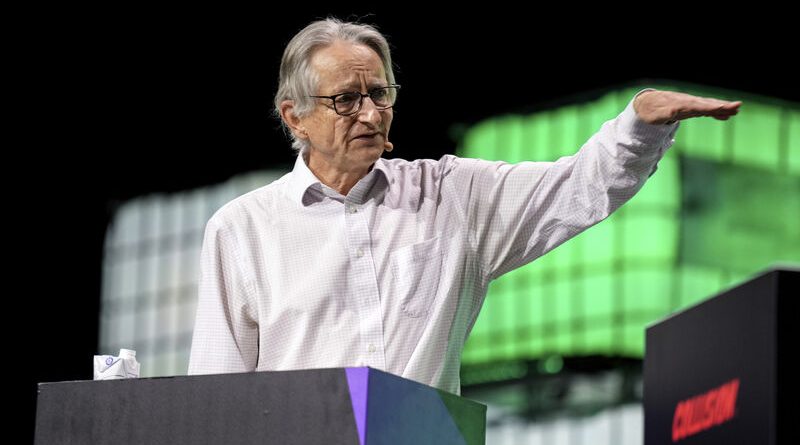Geoffrey Hinton Warns of AI’s Growing Danger After Nobel Prize Win
British-Canadian computer scientist Geoffrey Hinton has expressed concerns about the increasing dangers of artificial intelligence (AI) following his Nobel Prize win in Physics. The 76-year-old professor, who shares the honour with Princeton University’s John Hopfield, admitted to being “flabbergasted” by the recognition.
Hinton’s groundbreaking work has laid the foundation for machine learning, enabling computers to replicate human intelligence. However, in recent years, he has shifted his focus toward advocating for AI safety. His resignation from Google last year drew significant attention, as he cited fears that “bad actors” could misuse the technology.
In media interviews after his Nobel win, Hinton reiterated calls for more research into AI safety. He warned that unchecked AI development could lead to increased cyber and phishing attacks, the creation of fake videos, and continued political interference. “Quite a few good researchers believe that sometime in the next 20 years, AI will become more intelligent than us,” he noted, emphasizing the need for careful consideration of what that means for humanity.
Hinton described his shock upon receiving the Nobel Prize notification at 1 a.m. in a California hotel. He mentioned that he had not even known he was nominated. “I’m not a physicist; I have a very high respect for physics,” he stated, reflecting on his early struggles with the subject in university.
Despite his surprise, he expressed gratitude that the Nobel Committee recognized advancements in artificial neural networks. Throughout his career, Hinton has contributed significantly to AI research, winning the Turing Award in 2018 for his work. Before leaving Google, he divided his time between the company’s AI research team and the University of Toronto, where he serves as professor emeritus.
Born in London in 1947 to entomologist Howard Hinton and teacher Margaret Clark, Hinton has deep familial ties to mathematics. He completed his PhD in artificial intelligence at the University of Edinburgh in 1978.
Hinton’s innovations include the 1985 Boltzmann machine, which contributed to modern AI applications, and a 2012 neural network that could identify objects in photos, marking a major milestone in AI development. Hinton plans to donate his share of the 11 million Swedish krona (£810,000) prize fund to charities, including those that provide job opportunities for neurodiverse young adults.


Pingback: cheapest buy androxal generic where to buy
Pingback: buy cheap rifaximin cheap in uk
Pingback: get enclomiphene generic lowest price
Pingback: pharmacie canadienne kamagra en ligne
Pingback: compare price dutasteride
Pingback: cheapest buy flexeril cyclobenzaprine cheap next day delivery
Pingback: cheapest buy gabapentin price on prescription
Pingback: how to order fildena cheap mastercard
Pingback: buy cheap itraconazole overnight
Pingback: buy cheap staxyn generic available in united states
Pingback: order avodart prescription
Pingback: online order xifaxan buy in london
Pingback: kamagra bez předpisu kanady